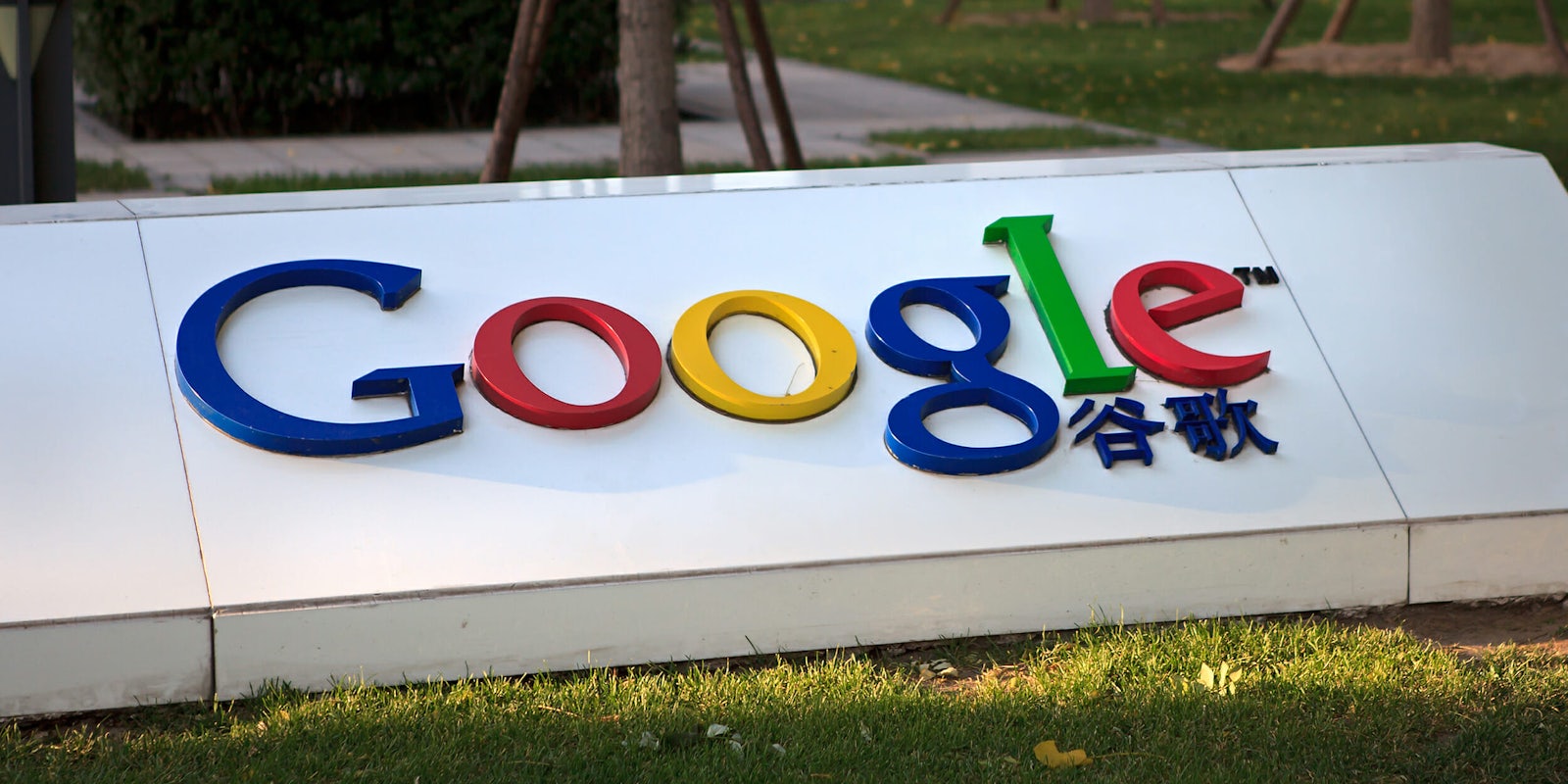Google employees are hard at work developing a secretive project for China—a market that Google left amid some degree of contention back in 2010—following concerns over security and free speech. Codenamed Dragonfly, the project would provide China with a censored search engine to fit the requests of the Chinese government. It would censor searches for phrases like “human rights” and blacklist entire websites, according to the Intercept.
“Right now all we’ve done is some exploration, but since we don’t have any plans to launch something there’s nothing much I can say about it,” Ben Gomes told the BBC last month. This contradicts a transcript of remarks made by Gomes to Google employees on July 18, 2018.
“The future is very unpredictable. Six to nine months [to launch],” Gomes said. “We just don’t know what the future holds in some ways. We have to be focused on what we want to enable, and then when the opening happens we are ready for it.”
This tenuous timeline goes against claims that Google has no real idea when Dragonfly will launch in China. In September, Keith Enright told the Senate Commerce, Science and Transportation Committee that Google’s China timeline was “unclear” and could not explain the “contours of what is in scope or what is out of scope for that project,” according to reporting from the Intercept.
In his address to Google employees, Gomes discussed the contentious trade relationship between China and the United States, which has served as a roadblock to continuing efforts by Google to negotiate with Communist Party officials. Google is waiting for approval from Beijing, at which time it hopes to have Dragonfly ready for launch.
These efforts by Google came under fire following reports of the project being leaked to the Intercept in early August. One unnamed employee discussed the project, which aims to comply with the strict rules laid out by China’s Communist Party.
“I’m against large companies and governments collaborating in the oppression of their people, and feel like transparency around what’s being done is in the public interest,” they told the Intercept. The Chinese government is known for its suppression of information, including references to “anticommunism,” American news organizations like the New York Times, and even books like George Orwell’s Animal Farm. Dragonfly will automatically identify and filter all content not approved by the Chinese government, according to documents seen by the Intercept.
Google employees have spoken out against the project, along with human rights groups like Amnesty International and Vice President Mike Pence. He spoke on Oct. 4 at the Hudson Institute, saying “for a time, Beijing inched toward greater liberty and respect for human rights. But in recent years, China has taken a sharp U-turn toward control and oppression of its own people.
“Today, China has built an unparalleled surveillance state,” he continued. “and it’s growing more expansive and intrusive—often with the help of U.S. technology.” His urging of Google to ditch Dragonfly in the interest of the safety and freedom of Chinese customers echoed concerns from a coalition of 14 human rights organizations, which sent an open letter to Google saying efforts from the company were “directly contributing to, or [becoming] complicit in, human rights violations.”
The project has been underway since early 2017, and despite rising concerns development has not stalled. Perhaps the most frightening aspect of the project is its special features, which allow location tracking on phone numbers and IP addresses so that each search term can be connected to the person searching it, according to the Next Web.
Despite criticism from a number of high-profile persons and organizations, Google appears well underway with its reported plans.
H/T the Intercept
